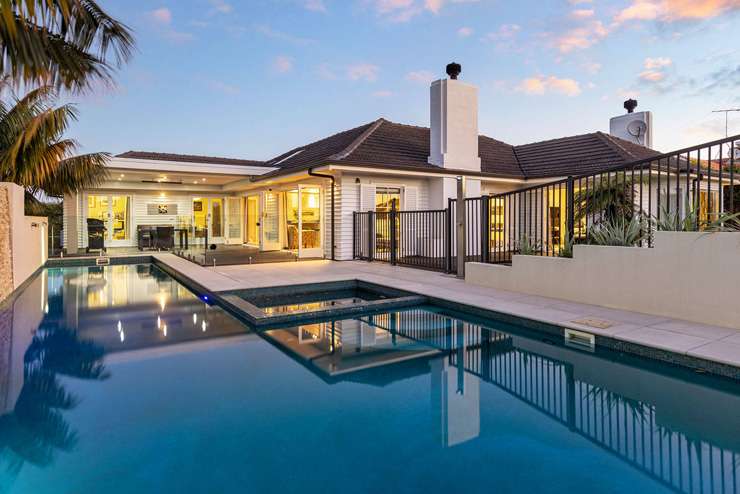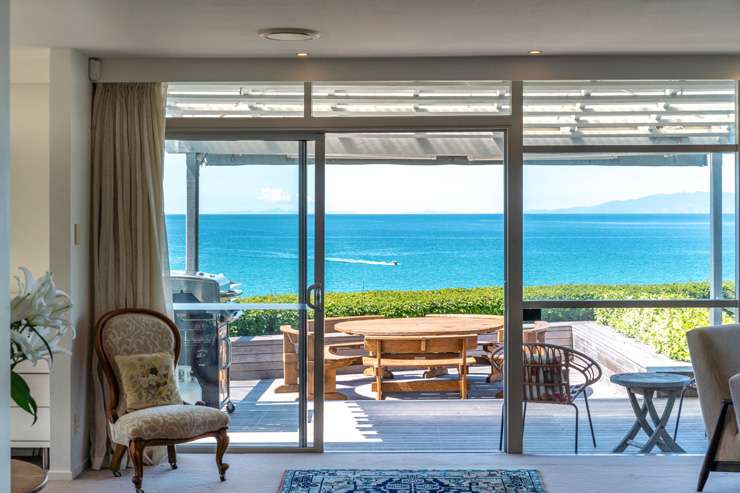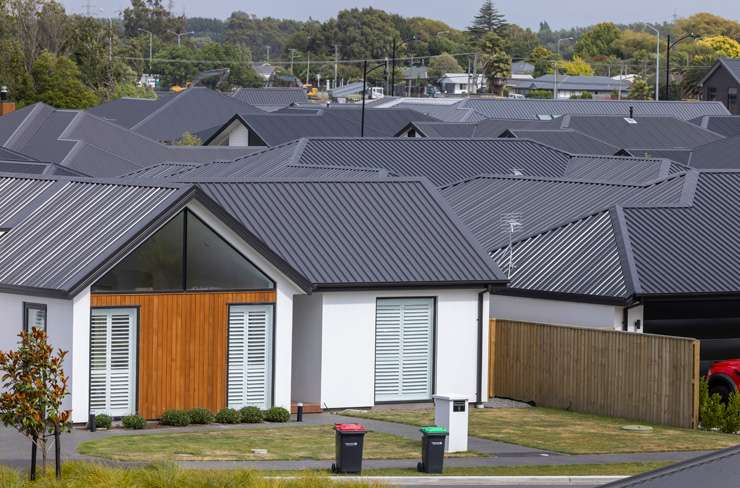Housing market profits are almost double what they were two years ago but are starting to dip, new figures show.
A new report by CoreLogic found that the median resale profit for properties sold in the first three months of 2022 was $406,000 - 0.2% below the $435,000 recorded in the fourth quarter of 2021.
However, the gain was still significantly higher than the $233,632 homeowners were enjoying at the start of the Covid crisis and is still the second highest in 26 years.
The owners of a five-bedroom house in Auckland’s Remuera enjoyed the quarter's biggest gain after selling up for $8.465 million - $6.63m more than what they originally paid for the Orakei Road property in 2004.
Start your property search
Other big resale profits included the $5.38m made over in 23 years for a bach one back from the beach on Waiheke Island and the $4.767m made over 18 years for four-bedroom home zoned for development on Victoria Avenue in Remuera.

This four-bedroom home on Victoria Avenue, in Remuera, Auckland, made $4.767m made over 18 years. Photo / Supplied
The CoreLogic report found that just 0.9% of properties that settled in the first quarter of this year did so at a loss, with the median "pain" for those homeowners $37,500. The property that made the biggest loss was a three-bedroom home in Upper Hutt that sold for $950,000 - $150,000 less than the $1.1m the owners paid for it in May 2021.
CoreLogic chief economist Kelvin Davidson said that pain and gain in New Zealand's housing market often came down to how long homeowners had held their property.
Someone who had owned their home for seven years or more would inevitably make a gross profit, even if market values fell slightly in the next few months, he said.

A bach in Oneroa on Waiheke Island made a gain of $5.38m. Photo / Supplied
The median hold period for the 88 properties identified as loss-makers in the report was 1.8 years - down from 2.5 years in the last quarter of 2021.
Often the properties that made a loss were bought and sold within a small timeframe due to a number of reasons including death or divorce.
In Auckland, 1.8% of sales made a loss, up from 1.1% quarter-on-quarter, while in Wellington 1.3% of all properties sold in the first three months of 2022 were done at a loss. There was no change in Christchurch and Dunedin where 0.5% and 0.3% of properties respectively have sold at a loss.
Every property sold in Hamilton and Tauranga in the first quarter of 2022 made a profit.
Overall, the median gross profits made in Auckland, Tauranga, and Wellington in the three months to March 2022 were between $530,000 and $560,000, while Hamilton’s profit was $425,000.
Davidson said that for many owner-occupiers the increase in profit gains didn’t necessarily mean they had more cash in their pockets as they would typically be ploughed back into their next property – potentially with a larger mortgage too.

Houses in Christchurch. The median profit for all of New Zealand dipped to $406,000 in the first quarter of 2022. Photo / Fiona Goodall
“Unless they’re downsizing or moving to a cheaper location, these resale gains are not typically cash windfalls and, in most cases, any profit made from a resale will need to be injected straight back into a new property, with ‘trade ups’ actually likely to involve higher debt levels in many cases, too.”
Davidson said loss-making resales would become more common over the coming quarters as house prices dropped and interest rates increased, forcing some people to sell at a loss.
“Certainly, there are likely to be some investors who have purchased in the last couple of years who may now be questioning their decision, as gross rental yields remain low, regulatory and mortgage costs rise, and capital gains evaporate (or even turn into paper losses). Some of these owners may be looking to consolidate/reduce debt levels, and potentially be willing to cut their sale price in order to do that."

CoreLogic chief economist Kelvin Davidson says the majority of gains would be wiped out by the next purchase. Photo / Peter Meecham
The flipside to moving around in a cooling market is that there can be bargains to be had as while the existing property might lose value, the next property might have lost even more.
Davidson said people also needed to be clear in their minds about the difference between getting less for a house than what they may have had if they had sold three months ago and losing money by selling it for less than what they paid.
Houses also appeared to be a safer bet and were making their owners more money with the profit gains on houses only dropping slightly by 0.1%, while those on apartments fell 3%.
Davidson said even the lower amount made from selling apartments in the last quarter wasn’t concerning because in 2008 about half the apartments were sold for a gross loss and even in 2019 between 15% and 20% were sold for less than what they were bought for.


































































